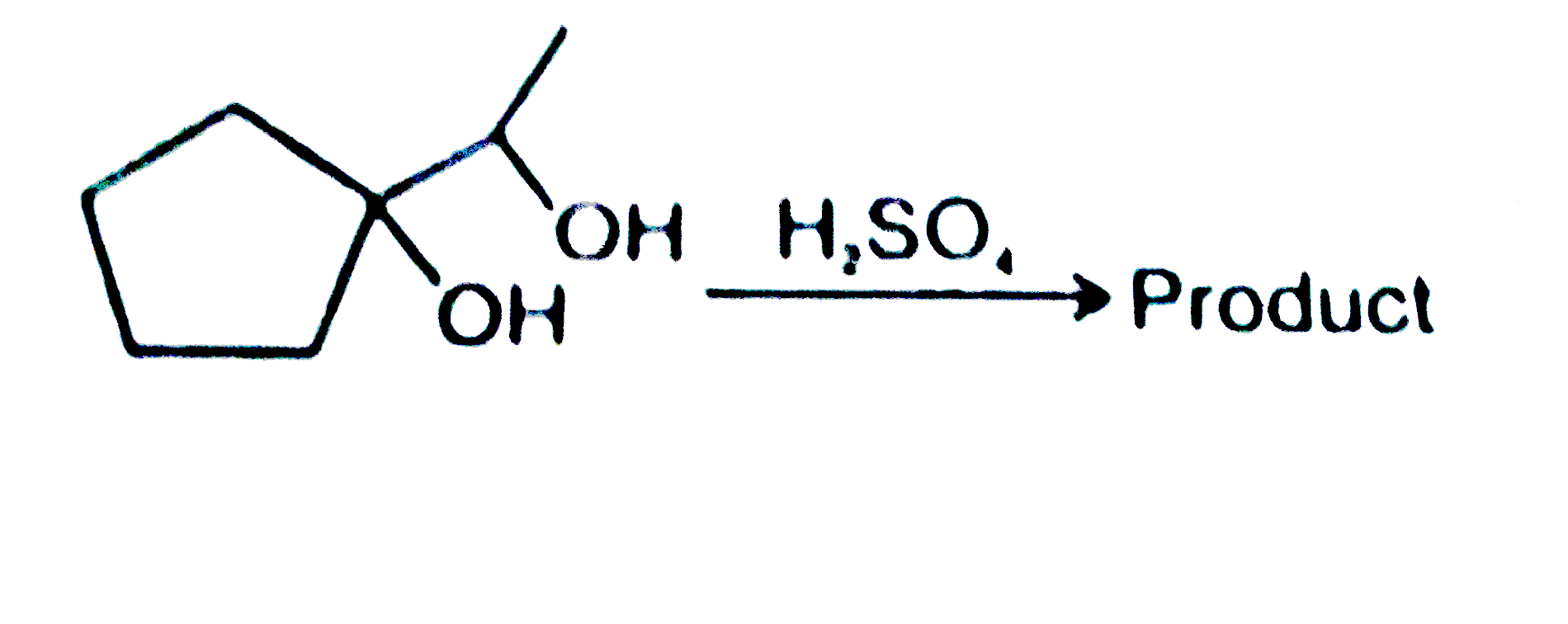Primary alcohols on dehydration give
Alkenes
Alkanes
Both (Alkenes) and (Alkanes)
None of these
The correct Answer is:A
R−CH2−CH21∘alcohol−OH
Conc.H2SO4−−−−−−−→170∘CR−CHAlkene=CH2+H2O
Alkene The reaction is an elimination reaction. High temperature is required.
Topper's Solved these Questions
Similar Questions
Knowledge Check
Which of the following alcohols on dehydration gives most stable carbocation?
ACH3−C∣CH3H−CH2OHBCH3−CH3∣C∣CH3−OHCCH3−CH2−CH2−CH2OHDCH3−C∣OHH−CH2CH3Which of the following alcohols on dehydration gives most stable carbocation?
ACH3−C∣CH3H−CH2OHBCH3−CH3∣C∣CH3−OHCCH3−CH2−CH2−CH2OHDCH3−C∣OHH−CH2CH3Which one of the following NOT give a primary alcohol on reduction ?
APropanoic acidBPropanalCMethyl propanoateDPropan-2-one
Alcohols undergo acid catalysed elimination reactions to produce alkenes. Because water is lost in the elimination , this reaction is called dehydration reaction. Secondary and tertiary alcohols always give E1 reaction in dehydration. Primary alcohols whose β-carbon is branched also give E1 reaction. The reactivity of alcohol for elimination reaction is tertiary alcohol gt secondary school gt Primary alcohol.
Identify the product in the given reaction :

View SolutionThe alcohol which does not give a stable compound on dehydration is :
View SolutionAlcohols undergo acid catalysed elimination reactions to produce alkenes. Because water is lost in the elimination , this reaction is called dehydration reaction. Secondary and tertiary alcohols always give E1 reaction in dehydration. Primary alcohols whose β-carbon is branched also give E1 reaction. The reactivity of alcohol for elimination reaction is tertiary alcohol gt secondary school gt Primary alcohol.
Identify the product in the given reaction :

View SolutionThe alcohol which does not give a stable compound on dehydration is
View SolutionDehydration of tertiary alcohols with Cu at 573 gives
View Solution
